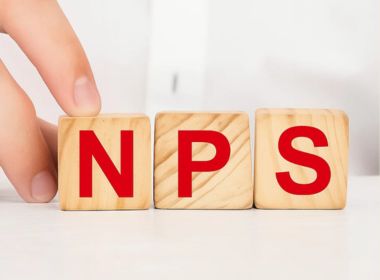Search Suggestions
- Gold Loan
- Money Transfer
- Mutual Funds

Mudra Loan vs MSME Loan: Key Differences Every Small Business Owner Must Know
Micro, Small, and Medium Enterprises (MSMEs) are a vital part of India’s economy, contributing heavily to both employment and GDP. To help these businesses meet their financial requirements, the government, along with banks and financial institutions, provide different funding solutions, such as MSME loans and MUDRA loans. These loans support needs like working capital, expansion, and the purchase of equipment.
Table of Content
- What is an MSME Loan?
- What is a MUDRA Loan?
- Eligibility criteria for MSME Loan vs MUDRA Loan
- Purpose of MSME Loan vs MUDRA Loan
While MSME loans serve a wider range of enterprises, MUDRA loans are specifically designed for micro and small businesses, offering collateral-free funding. Knowing the difference between the two, along with details about eligibility, interest rates, and benefits, can help entrepreneurs choose the right option for their business.
What is an MSME Loan?
An MSME loan is a credit facility created to meet the capital and operational needs of micro, small, and medium enterprises. These loans are offered by banks, NBFCs, and various government schemes to fuel business growth, infrastructure upgrades, and smooth day-to-day functioning. Depending on the lender, MSME loans may be either secured or unsecured, with loan amounts usually going up to ₹2 crore, though some government programs allow higher limits.
They can be used for purposes such as purchasing raw materials, upgrading machinery, business expansion, or meeting working capital requirements. In some cases, government-backed schemes also provide loans at subsidised interest rates to promote entrepreneurship. To be eligible, borrowers must meet specific conditions related to turnover, years in operation, and financial stability.
What is a MUDRA Loan?
MUDRA loans fall under the Pradhan Mantri Mudra Yojana (PMMY), a government initiative aimed at boosting micro and small enterprises. MUDRA (Micro Units Development and Refinance Agency) provides collateral-free loans of up to ₹10 lakh to small, non-corporate, non-farm businesses. These loans are divided into three categories based on the stage of the business:
- Shishu: up to ₹50,000
- Kishore: ₹50,000 to ₹5 lakh
- Tarun: ₹5 lakh to ₹10 lakh
MUDRA loans are commonly used for buying equipment, scaling up operations, or fulfilling working capital needs. They are offered by banks, MFIs, and NBFCs, with relatively simple eligibility requirements to make credit more accessible. Special benefits are also extended to women entrepreneurs and individuals from weaker sections, making MUDRA loans a strong financial support system for small businesses at the grassroots level.
Eligibility criteria for MSME Loan vs MUDRA Loan
Eligibility Criteria for Business Loans
Before applying for a business loan, it’s essential to understand the basic requirements. Here’s what lenders typically look for:
MSME Loan:
- Lenders generally expect a minimum turnover and a certain number of years in operation (this varies by institution).
- A good credit or CIBIL score and a stable financial record are important.
- For higher loan amounts, some lenders may ask for collateral.
MUDRA Loan:
- Only micro and small businesses qualify.
- There is no mandatory turnover requirement.
- The business should be non-corporate and non-farm in nature.
- No collateral is required to avail the loan.
- Women entrepreneurs and applicants from SC/ST communities are given special preference.
Purpose of MSME Loan vs MUDRA Loan
MSME loans vs MUDRA loans aim to support business growth; they cater to different needs depending on the size and stage of the enterprise.
MSME Loan
- Ideal for expanding business infrastructure
- Helps in purchasing heavy machinery or advanced equipment
- Supports larger working capital requirements
- Can be used to finance export and import-related operations
MUDRA Loan
- Designed for setting up or running micro-businesses
- Suitable for small-scale trade, retail, and service activities
- Helps in buying basic tools or small equipment
- Provides working capital support to micro-enterprises
Suggested Read: SME Loan - Meaning, Eligibility, and Things to Remember
Benefits of MSME loan and MUDRA loan
Below are the benefits of both MSME and MUDRA loans
MSME Loan
Pros:
- Offers higher loan amounts suitable for medium and small enterprises
- Competitive interest rates
- Government subsidies may be available to reduce borrowing costs
MUDRA Loan
Pros:
- No collateral needed
- Government-backed, making it easier to access
- Ideal for micro-businesses, small enterprises, and startups
- Fast disbursal of funds
MSME and MUDRA loans are vital financial resources that help businesses grow across India. MSME loans are designed for medium and small enterprises that require larger amounts of funding, while MUDRA loans offer easily accessible credit to micro-businesses. Entrepreneurs can also explore options like a gold loan for meeting urgent working capital needs.
Entrepreneurs should carefully assess their funding needs, eligibility, and repayment capacity before selecting a loan. Both types of loans play a key role in promoting entrepreneurship and driving economic growth, ensuring that businesses have the financial support they need to succeed.
CATEGORIES
OUR SERVICES
-

Credit Score
-

Gold Loan
-

Personal Loan
-

Cibil Score
-

Vehicle Loan
-

Small Business Loan
-

Money Transfer
-

Insurance
-

Mutual Funds
-

SME Loan
-

Corporate Loan
-

NCD
-

PAN Card
-

NPS
-

Custom Offers
-

Digital & Cashless
-

Milligram Rewards
-

Bank Mapping
-

Housing Finance
-

#Big Business Loan
-

#Gold Loan Mela
-

#Kholiye Khushiyon Ki Tijori
-

#Gold Loan At Home
-

#Sunherisoch
RECENT POSTS

Understanding Gold Bees: How it Works, Net Asset Value, Returns and More
Know More
Multi Cap and Flexi Cap Mutual Funds: How Are They Different?
Know More
Online Personal Loan vs. Offline Personal Loan - Which Is Better for You?
Know More
10 Tips to Improve Chances of Personal Loan Approval
Know More
10 Factors Affecting Mutual Fund Performance Explained Simply
Know More
10 Key Factors That Affect Your Personal Loan EMI
Know More
What Is Fine Gold? Meaning, Purity (999), Uses & Price Explained
Know More
Gold vs Silver: Which is Better as an Investment?
Know More
Why Gold Is a Safe Haven Asset: Meaning, Benefits & Real Examples
Know More
Gold or Bitcoin - Best Investment for Value Retention
Know MoreFIN SHORTS

The Best 7 SIF Funds of 2026: A Better Way to Invest
Know More
Gold Price Hits ₹1,40,000: How It Impacts Gold Loan Amounts
Know More
How to Check Loan Number: Step-by-Step Process
Know More
How to Open an SIP Account: Online and Offline Process
Know More
How Do I Apply for MSME Certification Online in India?
Know More
7 Important Reasons to Choose Hallmark Gold When Buying Jewellery
Know More
What Are Co-Pay and Deductibles in Insurance Policies?
Know More
Should You Take a Loan Against Your Mutual Fund or SIP?
Know More
Top 5 Best Mid-Cap Mutual Funds to Watch in 2026
Know More
Are Personal Loans Right for Retirees? Key Points to Consider
Know More
What Happens to a Personal Loan After the Borrower Dies?
Know More
Best Loan Choices for Credit Scores of 580 and Below
Know More- South +91 99469 01212
- North 1800 313 1212





